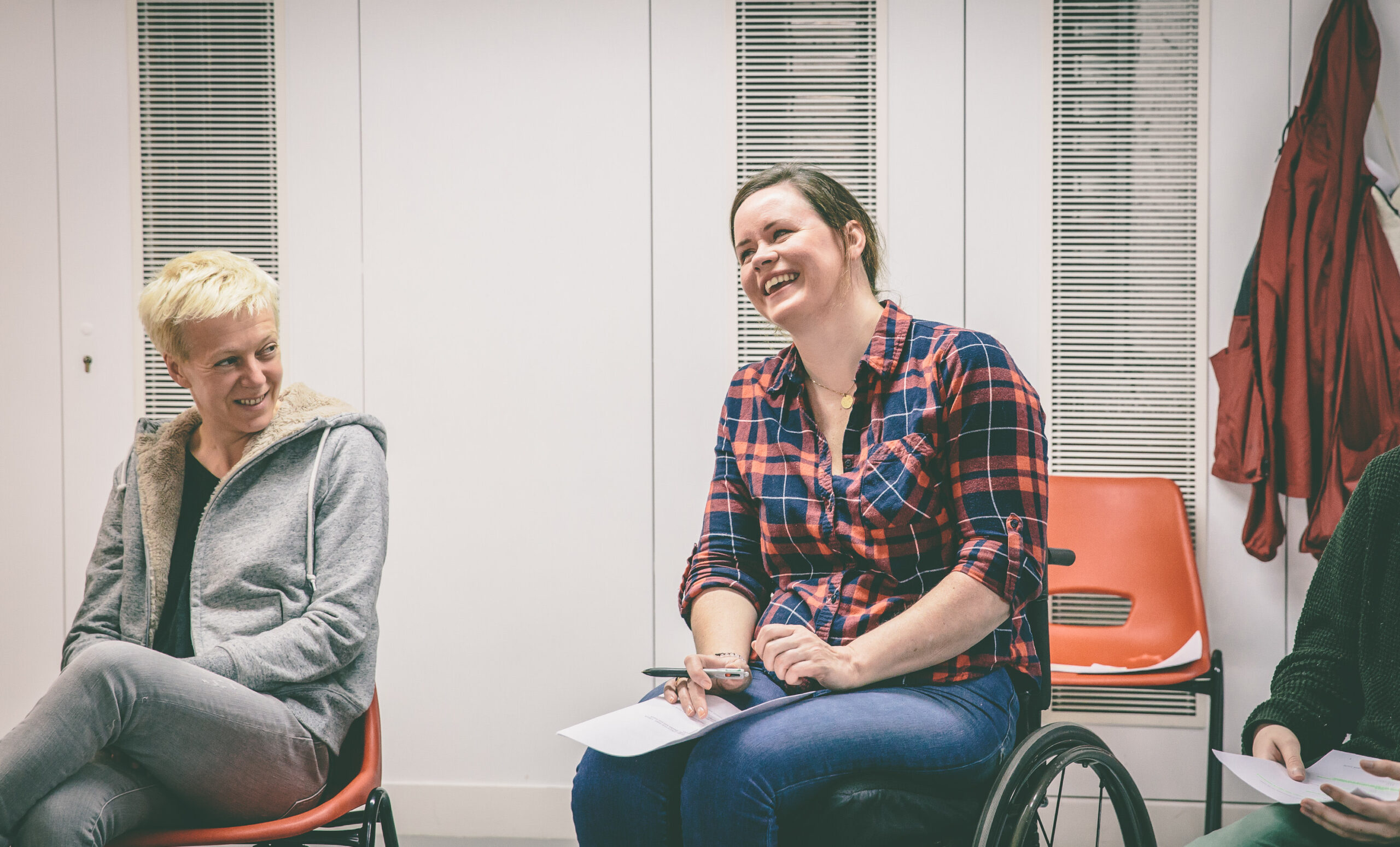Eight steps for handling feedback, whether it’s constructive or misguided
As actors, feedback is a necessary part of our craft. We can’t see our performance from the outside, so we rely on teachers and directors to guide us. However, criticism is sometimes less than constructive. It can be ill-intentioned, clumsily put, misguided or plain unhelpful. And we don’t always have control over when feedback is given – cue that one castmate who gives everyone else ‘notes’.
If we don’t emotionally and intellectually process the feedback we get, we can end up feeling discouraged and stuck. So, here are eight steps to help you handle criticism when you receive it.
Step 1: Take the feedback
If you’re receiving it in person, you may not have a choice in this. But if you receive feedback in writing or another way that isn’t face-to-face, you can’t ignore it forever. If you feel the critique will be hard to receive, make time to put yourself in a comfortable, loving and safe space physically, mentally and emotionally before taking the feedback on-board.
Step 2: Note down what’s helpful and what’s not
Is there anything that rings true or that you can work with? Are there any phrases that feel hurtful or confusing? You don’t have to justify your feelings or reasoning at this stage. Just note down anything that stands out to you.
Step 3: Revisit positive feedback from the past
Even well-constructed feedback can make us doubt ourselves. Revisiting praise – whether it’s a good review, praise from a teacher or friends hyping you up – can remind us that we are talented, despite this critique. If you struggle to recall positive feedback, take time to collect good reviews and praise. You can do this digitally in an online folder, or physically in a journal or scrapbook.
Step 4: Acknowledge that ‘bad work’ is part of the process
We can all name great actors who have given a terrible performance. Sometimes we do bad work and that’s okay. It’s not a reflection of our self-worth or talent and it provides us with an opportunity to learn and grow.
Step 5: Analyse the feedback and your response to it
Go back to the criticism. If there’s anything particularly triggering? Explore why that might be. Does it remind you of criticism you’ve had in the past? Does it sound like any negative self-talk you have?
If there’s any confusing or unhelpful feedback, try and find the underlying problem that prompted that observation in the critique. For example, if you get the note to ‘be more believable’, think about what you might not have been doing that would cause your performance to be less believable. Could you have been more present? Could you have used clearer actions or objectives? If you’re stuck with this, seek advice from a trusted teacher or mentor.
Step 6: Emotionally process the feedback
Once you’ve mined the feedback for anything helpful, process any emotions that are still lingering. These can be uncomfortable emotions like disappointment, rejection or shame, but also lighter emotions like gratitude, acceptance or pride. This is the time to acknowledge any praise and useful advice in the critique, honour any hurt that it caused and defend yourself and your art. You can do this by writing a letter to your critic – but don’t send it – journaling, comforting your younger self, or talking through the feedback with yourself or a trusted friend or colleague.
Step 7: Decide what you want to do with the feedback
Do you want to take the feedback on board or discard it in part or entirely? You have a choice in what advice you listen to. If things in the critique feel helpful, it may be wise to act on it. But you can also consider how much you trust the person critiquing you, how experienced they are and your own artistic preference. Remember that feedback is opinion-based and subjective, therefore, it doesn’t always need to be listened to.
Step 8: Do something creative and proactive
Now you’ve done all that work, it’s time to get back on the horse. Do something creatively joyful like singing through your favourite song or pulling out your favourite monologue. If there are things from the critique you want to work on, book in a lesson or a class.
If doing something related to your acting work feels too raw right now, do something creative but unrelated. Paint, play music, write or craft. Engaging with creativity will prevent this feedback from blocking you and reconnect you with your love for what you do.
Constructive criticism is rarely comfortable. It forces us to see our work through another’s eyes and opens us up to feelings of rejection and ridicule. But with a combination of an open mind and self-compassion, you can handle and grow from any feedback you receive.
Find more tips and advice for auditions on our website.
 Michaela Bennison is an actor and writer, whose performance credits include ‘Into the Woods’ at The Royal Exchange, Manchester, ‘Lady of Jazz’ at Hope Mill Theatre and ‘The Dresser’ UK Tour.
Michaela Bennison is an actor and writer, whose performance credits include ‘Into the Woods’ at The Royal Exchange, Manchester, ‘Lady of Jazz’ at Hope Mill Theatre and ‘The Dresser’ UK Tour.
Michaela runs a blog and YouTube channel, where she shares her thoughts about the theatre industry and offers advice to actors based on her experiences.
Headshot credit: John Clark
Main image credit: EvgeniyShkolenko / iStock












